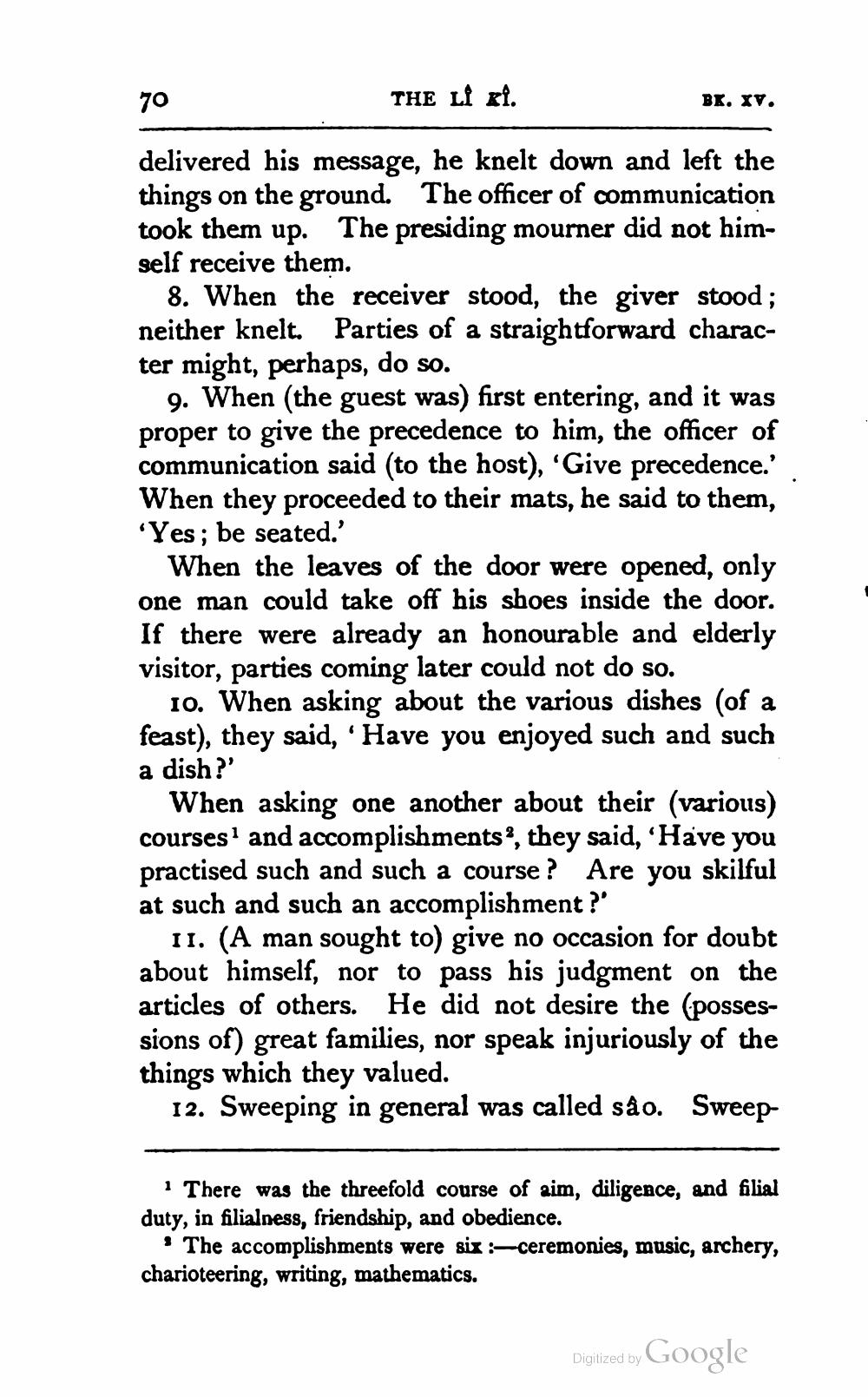________________
THE LI ri.
BK. XV.
delivered his message, he knelt down and left the things on the ground. The officer of communication took them up. The presiding mourner did not himself receive them.
8. When the receiver stood, the giver stood; neither knelt. Parties of a straightforward character might, perhaps, do so.
9. When (the guest was) first entering, and it was proper to give the precedence to him, the officer of communication said (to the host), 'Give precedence.' When they proceeded to their mats, he said to them, Yes; be seated.'
When the leaves of the door were opened, only one man could take off his shoes inside the door. If there were already an honourable and elderly visitor, parties coming later could not do so.
10. When asking about the various dishes (of a feast), they said, 'Have you enjoyed such and such a dish?'
When asking one another about their (various) courses and accomplishments, they said, 'Have you practised such and such a course ? Are you skilful at such and such an accomplishment ?'
11. (A man sought to) give no occasion for doubt about himself, nor to pass his judgment on the articles of others. He did not desire the (possessions of) great families, nor speak injuriously of the things which they valued.
12. Sweeping in general was called sào. Sweep
1 There was the threefold course of aim, diligence, and filial duty, in filialness, friendship, and obedience.
· The accomplishments were six :-ceremonies, music, archery, charioteering, writing, mathematics.
Digitized by Google




